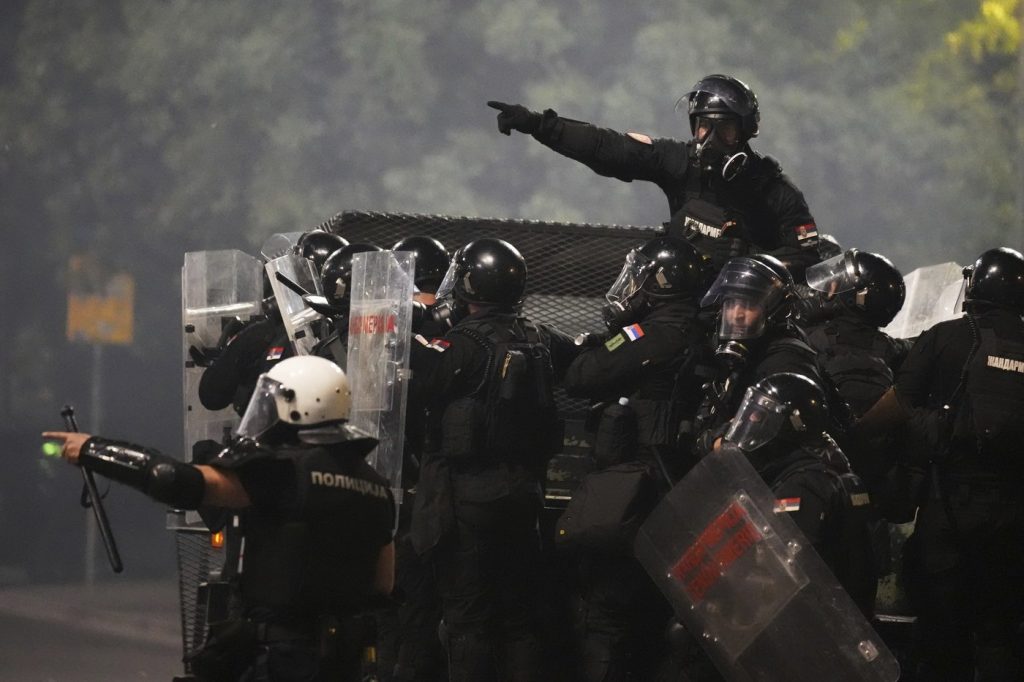BELGRADE, Serbia (AP) — On Sunday, Serbia’s President Aleksandar Vucic announced stringent measures against anti-government protesters after several days of riots across the nation that have questioned his increasingly autocratic governance. In a televised address, Vucic labeled the demonstrators as engaging in "pure terrorism" and maintained that the sustained protests against his rule were orchestrated by Western powers aiming to undermine Serbia.
Vucic declared, "Our country is in grave danger; they have jeopardized all our values, normal life, each individual." He suggested that there exists a complex scheme intended to install "anarcho-leftist" authorities in the future, though he did not provide any concrete evidence to substantiate his claims. He warned, "Unless we undertake tougher steps, it is a question of days when they (protesters) will kill someone," emphasizing his statement for historical record.
The warnings from Vucic followed five consecutive nights of violent clashes between protesters and police, as well as his loyalists. On Saturday night, demonstrators set fire to the offices of Vucic's Serbian Progressive Party in a town in western Serbia, targeting additional locations associated with the ruling coalition. The protests escalated in the capital, Belgrade, and in the northern city of Novi Sad, where riot police deployed tear gas in response to demonstrators who retaliated by throwing stun grenades, flares, and bottles.
While Vucic indicated that a state response would be forthcoming within a week, he assured that a state of emergency was not imminent. In the days leading up to his address, numerous individuals had already been detained and injured, with police facing accusations of excessive force and arbitrary detentions of protesters. "You will witness the determination of the state of Serbia," Vucic stated. "We will use everything at our disposal to restore peace and order in the country."
The recent clashes represent a significant escalation following over nine months of mostly peaceful protests initiated after a tragic event where a concrete canopy collapsed at a train station in northern Serbia, resulting in the deaths of 16 individuals. This tragedy raised public outcry against alleged widespread corruption in state infrastructure projects, attributed to inadequate renovation work, and led many to hold Vucic's administration accountable. He has been accused of stifling democratic freedoms while allowing organized crime and corruption to thrive, which he has denied.
Serbia is seeking to formalize its membership in the European Union; however, Vucic has retained close ties with Russia and China. During his Sunday address, he praised Russia’s support for his government, characterizing the protests as a "colored revolution" aimed against his authority.











